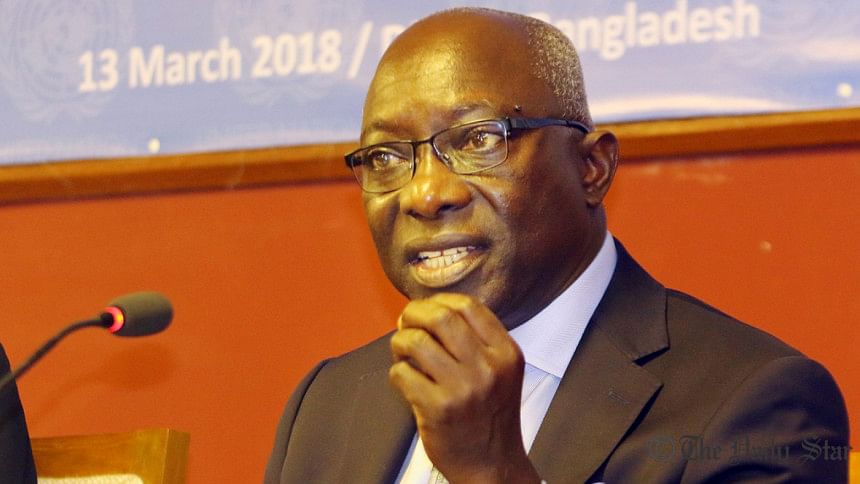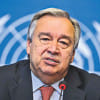Atrocity crimes on Rohingya were preventable: UN adviser

United Nations Special Adviser on the Prevention of Genocide Adama Dieng said the atrocity crimes on Rohingyas carried out by the Myanmar army were predictable and preventable.
"The scorched earth campaign carried out by the Myanmar security forces since August 2017 against the Rohingya population was predictable and preventable," he said in a statement.
He said: "What I have heard and witnessed in Cox's Bazaar is a human tragedy with the fingerprints of the Myanmar government and of the international community."
"Despite the numerous warnings I have made of the risk of atrocity crimes, the international community has buried its head in the sand," he said adding, this has cost the Rohingya population of Myanmar their lives, their dignity and their homes.
The UN official visited Bangladesh from March 7 to 13 to assess the situation of the Rohingya population who have crossed the border from Myanmar to Bangladesh since the most recent incidents of violence in northern Rakhine state in October 2016 and August 2017.
"During my visit, I had the opportunity to meet Bangladeshi authorities, civil society actors and members of the diplomatic community. I also visited refugee camps in Cox's Bazaar, where survivors I met shared horrifying stories of what they have endured," he said.
Rohingya Muslims have been killed, tortured, raped, burnt alive and humiliated, solely because of who they are, he added.
"All the information I have received indicates that the intent of the perpetrators was to cleanse northern Rakhine state of their existence, possibly even to destroy the Rohingya as such, which, if proven, would constitute the crime of genocide," Adama Dieng said.
In the statement, he came up with three suggestions—
First, the root causes of the problem must be addressed. Only then can this population return in safety and dignity to Myanmar. The fate of the Rohingya has been sealed since the day they were born. A fate of persecution and exclusion, he observed.
Second, there must be accountability for the crimes that have been committed. "I am perplexed by the denial of the widespread commission of serious crimes that has characterized the response of the Myanmar authorities. I urge the international community, in particular the United Nations Security Council, to consider different accountability options," he also said in the statement. The world needs to show that it is not ready to tolerate such barbaric acts.
Third, He lauded the remarkable work done by the Bangladeshi authorities in responding to the arrival of almost 700,000 Rohingya refugees in Cox's Bazar in the space of six months. "I call on the international community to do more to support Bangladesh in shouldering this responsibility," he urged.
The United Nations Secretary-General's Special Advisers on the Prevention of Genocide and on the Responsibility to Protect, who have distinct but complementary mandates, work together to advance national and international efforts to protect populations from genocide, war crimes, ethnic cleansing and crimes against humanity, as well as their incitement.

 For all latest news, follow The Daily Star's Google News channel.
For all latest news, follow The Daily Star's Google News channel. 








Comments